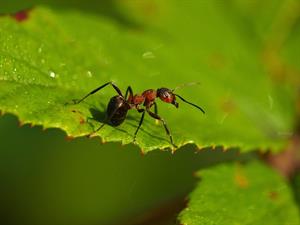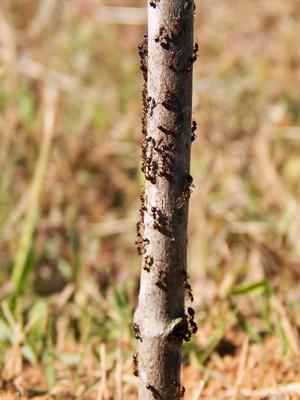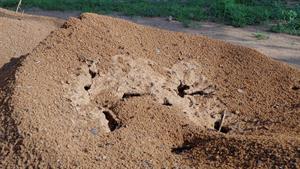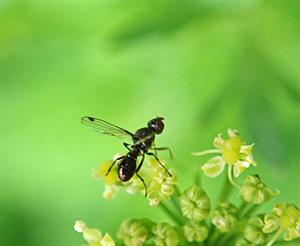
PUMPA - SMART LEARNING
எங்கள் ஆசிரியர்களுடன் 1-ஆன்-1 ஆலோசனை நேரத்தைப் பெறுங்கள். டாப்பர் ஆவதற்கு நாங்கள் பயிற்சி அளிப்போம்
Book Free DemoIf someone asks us to name the smallest and the wisest insect - what will be the answers?
Fly? - No
Mosquito? - No
Worm? - No.

There is a smaller and wiser insect than all of these: the most commonly seen insect - ants. The story of an ant is unbelievable. Ants have been grown as pets, like how people grow dogs and cats. By having ants as pets, they were able to see the ant's daily behavioural activities. That is how we have come to know a lot about ants.
Ants use their antennae (feelers on their head) to communicate with other ants. When we see a row of ants passing up or down a wall, they greet the ants coming from the other side - by touching with their feelers.

There are many kinds of ants. We have seen red and black ants since our childhood - these are the most common ones. But we haven't given much attention to ants.
Where do ants live? Nests or anthills. Anthills are comfortable homes where there are hundreds of little rooms or chambers for each class of ants and different activities.
- Some rooms for Queen ants - Queen ants lay eggs in these rooms.
- Some rooms are nurseries - for the young ants, called grubs.
- Some rooms are reserved quarters - for worker ants, who spend time searching for food.
- Some rooms are storehouses - for food brought in by worker ants.
- Some rooms are barracks - for soldier ants.

Worker ants will live only in their quarters; soldier ants will not go in search of food. Soldier or cleaner ants never harm any small ants (grubs). All their places and duties are clearly classified, and therefore an ant's life is very peaceful. Each ant does the work allotted to it cleverly and bravely. It doesn't fight with other members of the group.

A queen ant is the mother of the entire colony of ants. It lives for about 15 years. It has a pair of wings with which is flies (wedding flight) above in the air. It meets with the male ant, called drones on a hot summer day. On its return journey, it sheds its wings and comes back to lay eggs.
- Once the eggs hatch, the grub (or the larva) comes out.
- The soldier ants guard the grubs.
- The worker ants feed and clean the grubs. The workers carry the grubs daily to get air, sunshine and exercise.
- After 2-3 weeks, the grubs become cocoons.
- The cocoons lie without food or any activity for another 3 weeks.
- Then the cocoons break and ants are born.
- These ants start their training period- it learns their activities and duties from older ants - as workers, soldiers, builders, cleaners.
- After a few weeks of training, these ants are ready to face the world.
An anthill is a home for the ants, as we have seen earlier. But only ants live in it? No. Other creatures that live in an anthill are:
- beetles
- lesser breeds of ants
- greenfly
The ants do get good favours in return from these creatures, that is why it allows such unfamiliar beings in its nest. The following are the benefits to the ants:
- some insects give off pleasant smell to soothe the ant's senses
- some insects give sweet juices
- some are like toys/pets for the ants!
Greenfly: The greenfly to ants are like cows to humans. Human get milk from cows; ants get honey from greenflies. The ants train the greenflies to produce honeydew if touched with their antennae.
The ants seem so wise. What about humans? Have we learnt as much as the ants? Maybe we have learnt, we are not putting it into practical use. We still have a few more things to learn from this tiny teacher called ant:
- hard work
- sense of duty
- discipline
- cleanliness
- care for the young ones
- loyal to the earth that we live in.
Meanings of difficult words:
Words | Meanings |
| almost untrue | too good to be true, unbelievable |
| antennae | a pair of long, thin sensory attachments on the heads of insects |
| anthills | a nest in the form of mound built by ants |
| grubs | the larva of an insect, like ants |
| barracks | a building for soldiers to stay |
| alien | belonging to a different species or a group |
| loyalty | being faithful |